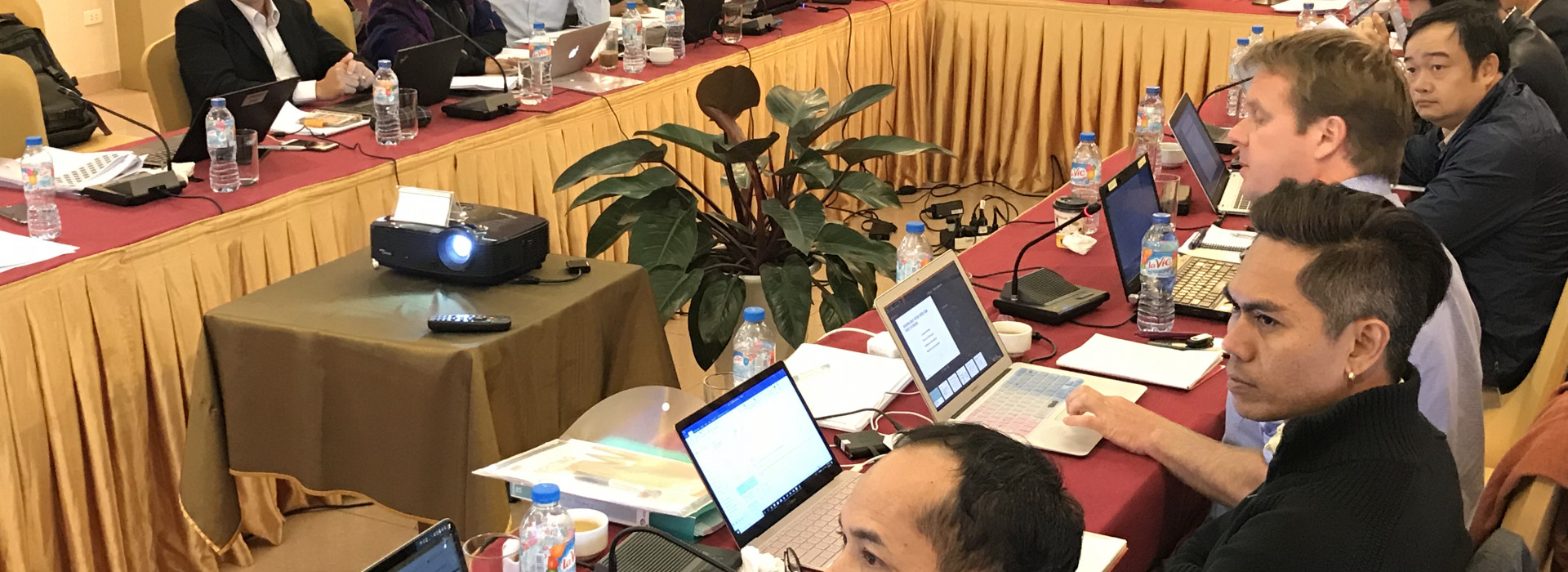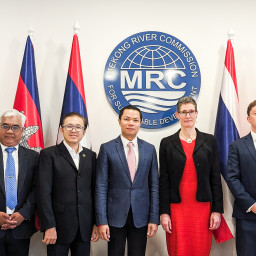Core Mechanisms of Bilateral Water Cooperation Agreed for Sesan – Srepok and Mekong Delta
Hanoi, Viet Nam, 2 February 2018 – A bilateral provincial body, a technical expert group, and an emergency response planning team will form the core of bilateral cooperation mechanisms between Cambodia and Viet Nam along the border provinces, say representatives of both countries working on cross-border water management issues in the Mekong Delta and the Sesan – Srepok rivers basin.
Teams of two bilateral projects on those basins held a two-day workshop in Hanoi from 29 to 30 January to strengthen provincial cooperation between the two countries to address transboundary water issues such as cross-border flood control and coordinated planning of water infrastructure development. About 15 water experts from both countries exchanged ideas on potential cooperation, based on field assessments on needs and gaps in the existing cooperation mechanisms between the border provinces.
During the workshop, the teams agreed that at least three kinds of parallel cooperation mechanisms – a bilateral provincial body, a technical expert group, and an emergency response planning team – would be necessary at a minimum to enhance bilateral provincial dialogue. The teams said that they would strengthen the existing bilateral provincial bodies to put water-related issues on the table in addition to border security and other concerns, enhance the function of the existing technical expert group to help address water issues such as flood management, water allocation and water quality control, and establish a new joint team to plan emergency responses to flooding and other disasters.
The Sesan- Srepok and the Mekong Delta bilateral projects are part of the five transboundary projects under the Mekong Integrated Water Resources Management Project (M-IWRMP), which facilitates better cooperation among the four Mekong countries of Cambodia, Lao PDR, Thailand and Viet Nam at local levels to respond to local water-related issues promptly. The five projects are coordinated by the Mekong River Commission and financed by the World Bank.
“We have been cooperating for four years to increase cooperation between the two countries, contributing to the sustainable development of the Mekong basin,” said Ms Nguyen Thi Thu Linh, Deputy Director General of the Vietnamese National Mekong Committee who co-chaired the workshop. “The IWRM project has created a great opportunity for us to work together to resolve transboundary issues with effective cooperation mechanisms.”
Both bilateral projects between Cambodia and Viet Nam already identified priority areas of cooperation. In the Sesan – Srepok basin where a cascade of hydropower dams have altered water flow regimes, both countries have decided to work together on flow monitoring, flood forecasting and mitigation measures for environmental impacts, among other issues. In the Mekong Delta, which is affected by upstream hydropower developments, water extraction for irrigation and climate change, the two countries have agreed to look into issues in hydro-infrastructure development, climate change impacts and inland waterway navigation.
Following the identification of priority issues, the bilateral teams have been studying ways to improve local responses to those issues at the provincial level by reviewing existing cooperation mechanisms and gaps to fill. They have already agreed that sharing of various hydro-meteorological data such as river flow rates, water quality and sediment movement would support more coordinated responses, and that conducting joint studies and researches would be enhance the ability to address common transboundary issues.
With the proposed parallel cooperation mechanisms to support such cooperation, the two project teams are expected to develop joint action plans to address priority issues by the end of 2018, and commence the implementation of pilot activities in early 2019.





